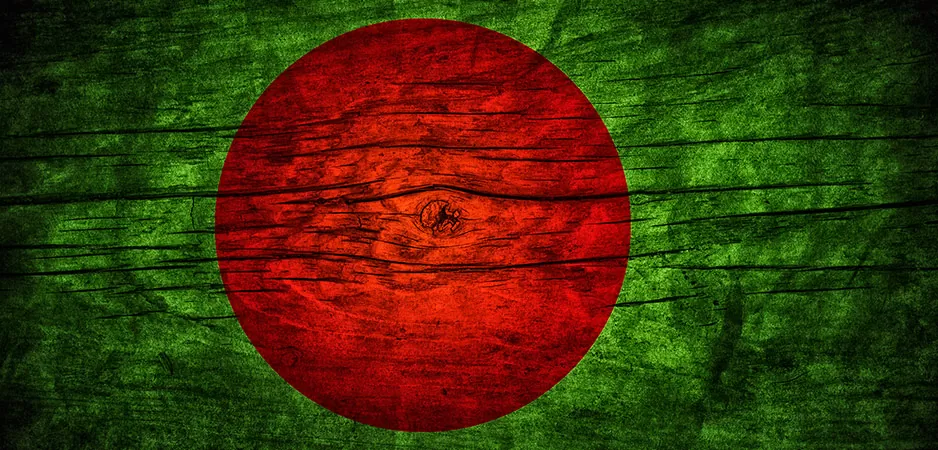Introduction
Bangladesh celebrates the 50th anniversary of its independence from Pakistan, this year. This year further marks India’s clinical and decisive victory against Pakistan, to further the course of Bangladesh’s independence. The comprehensive victory of India over Pakistan forced the authorities in Pakistan to set up a War Enquiry Probe called the Hamoodur Rahman Commission.
Hamoodur Rahman Commission (26 Nov 1971 – 23 Oct 1974)
The Hamoodur Rahman Commission was set up under the instructions of the President of Pakistan in 1971 in order to inquire about the circumstances, in which the Pakistani Armed Forces under the Eastern Command took the knee and laid down their arms and ordered a ceasefire. The commission was headed by the then Chief Justice of Pakistan Justice Hamoodur Rahman. The commission examined hundreds of complex and classified documents, testimonials and evidence and questioned around 300 witnesses to dwell deeper into the military discourse and surrender. The commission, after stringent detailing and scrutiny, held that serious acts of human rights violations and substantial instances of abuse of power from Pakistani authorities in the Eastern province coupled with the failed operation of civilians to martial law were the reasons responsible for the loss of East Pakistan. This controversial report, curated by the commission, prescribed strict and firm punishments for top army officials including court-martial and suspension orders. However, no Pakistani government paid serious heed to the report to punish the guilty officers and therefore, every copy of the commission report was burnt.
What did the report contain?
The commission was formed and constituted on 26 December 1971. And after four years of microscopic inspection, the contentious reports were finally submitted on 23rd October 1974. The report explained the reasons for the administrative and military failure which was responsible for the surrender of the Pak Army. It further enlisted detailed mentions of the moral, political and administrative wrongdoings in the Eastern province which ultimately led leaders such as Mujibur Rahman to create their own parties (Awaami League) and resort to military struggle for the creation of Bangladesh. The report unequivocally blamed the Pakistan Army for the shameful and embarrassing defeat in East Pakistan. The report, in its intent to rectify the mistakes and undue mishappenings, found it imperative to bring to book senior army commanders and officials who brought disgrace and defeat to the country. Adhering to the constitution of the country and Army code, the report further accused the authorities of usurpation of political power by criminal conspiracy, professional incompetence, culpable negligence and willful negligence in the performance of their duties and physical and moral cowardice in resisting to fight.
The report further went on to categorically blame senior army officials. Yahya Khan, for instance, who was the martial law administrator, was accused of having tried to influence political parties by threats and bribes. The accusations further went on to target Lt. General Gul Hasan and Major General Umar for the same charges as that of criminal neglect of duty and precipitating civil disobedience, all of which resulted in surrender. The commission report also indicated that Major General M Rahim Khan was on the periphery of sheer cowardice and framing charges, namely desertion, which led to the death of 14 naval ratings. Other senior officers and Army personnel such as Brigadier Jahanzaeb Arbab, Major General Muhammad Jamshed, Major General Abid Zahid, were also kept on the docket and charged with malice, looting, neglect of duty and surrendering without a fight.
What Happened After the Report was submitted?
The report was submitted after 3 years of the institution of the commission and not much was done about it. The then Prime Minister of Pakistan Mr Zulfiqar Ali Bhutto did not pay attention to the condiments of the report and rather insisted on burying the report and conclusively burning it. Fortunately, a copy of the said report was preserved and saved, and thus was presented before the world, showcasing one of the gruesome and shameful tasks ever performed by the men in uniform in human history. As the tradition suggests, Pakistan as a country has been infamous for suppressing human rights and overthrowing existing governments, and thus it wasn’t much for the world to connect the dots.
Nevertheless, the Eastern province is now an independent country, Bangladesh, and is swiftly progressing while battling its internal matters at the same time. India on the other hand smartingly and convincingly wears the win of the 1971 war on the sleeves and forever finds reasons to relive it and rejoice.

